Association Between Preparedness and Response Measures and COVID-19 Incidence and Mortality
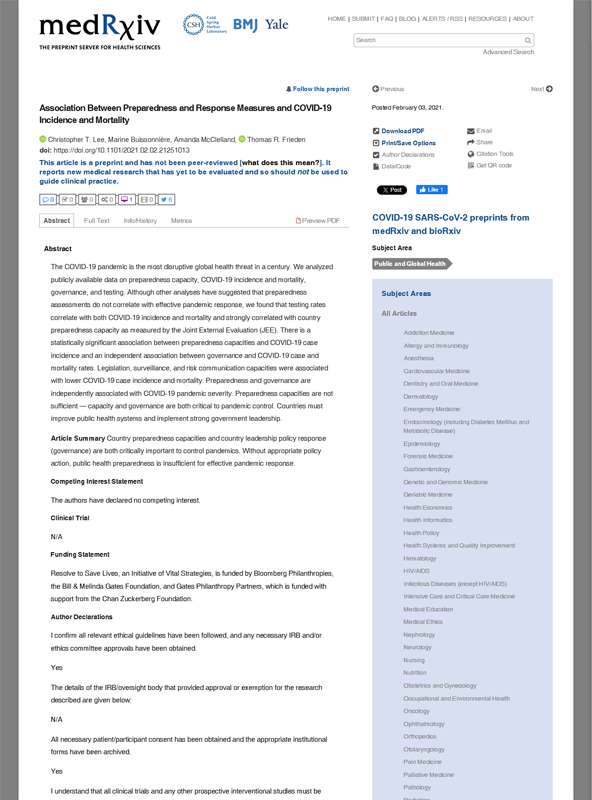
The COVID-19 pandemic was the most disruptive global health crisis in a century. Analysis of publicly available data by experts from Resolve to Save Lives revealed that alongside preparedness capacities, governance and leadership capacities independently contributed to lower COVID-19 cases and deaths. Both preparedness and governance are essential for effective pandemic control, requiring stronger public […]
COVID-19 / In-Depth Science Review: May 23 – 29, 2020
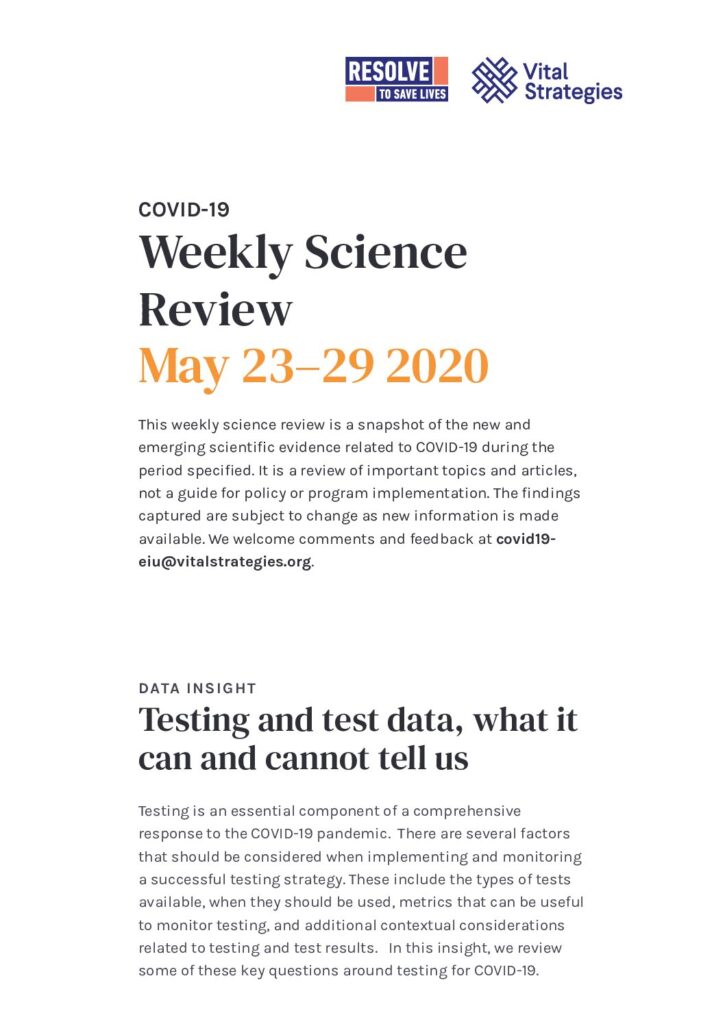
Testing and test data, what it can and cannot tell us This science review is a snapshot of the new and emerging scientific evidence related to COVID-19 during the period specified. It is a review of important topics and articles, not a guide for policy or program implementation. The findings captured are subject to change as […]
COVID-19 Risk Alert Levels
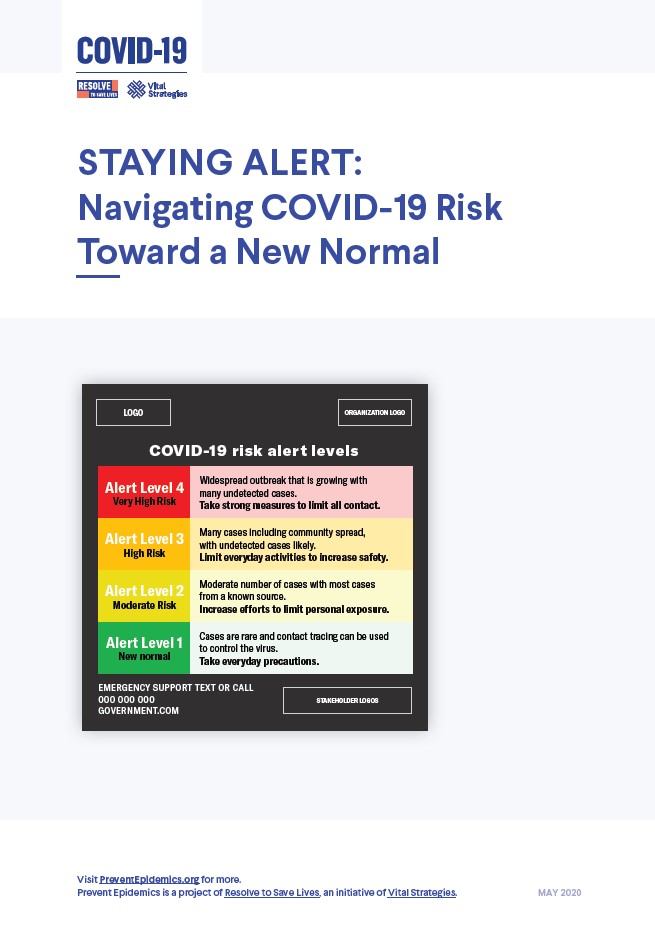
This briefing note explains why alert-level systems for COVID-19 are effective, compares models from several countries, and provides the key principles and potential pitfalls to be aware of when developing these systems. It is intended to provide guidance to local, regional and national governments on best practices for alert-level systems, and on how to clearly […]
COVID-19 / In-Depth Science Review: May 10 – 17, 2020
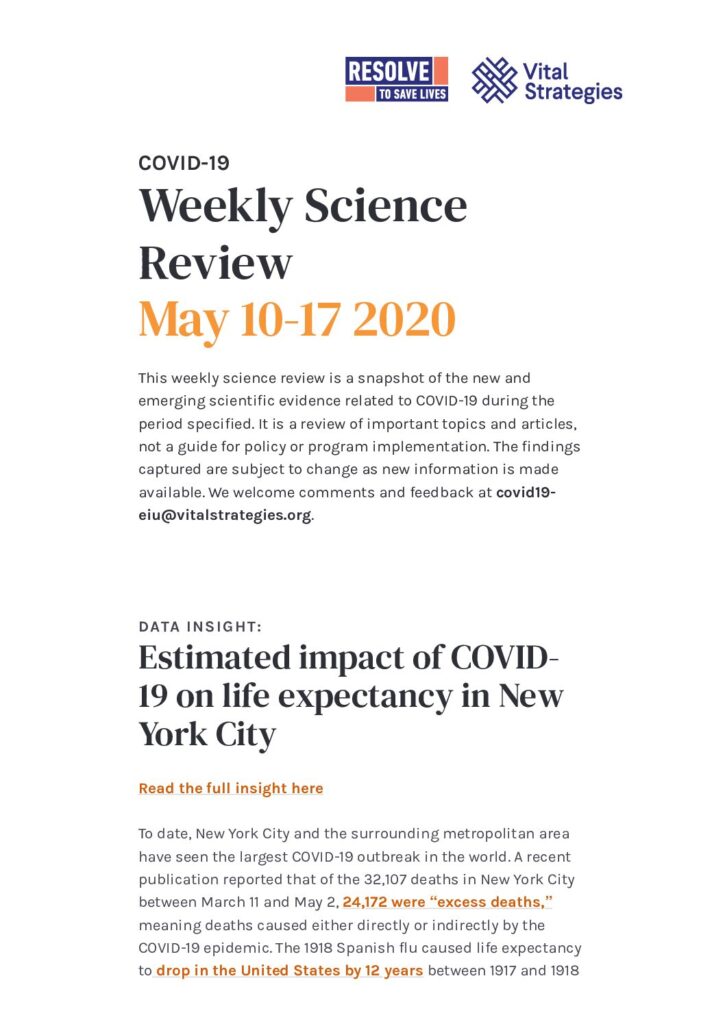
Estimated impact of COVID-19 on life expectancy in New York City This science review is a snapshot of the new and emerging scientific evidence related to COVID-19 during the period specified. It is a review of important topics and articles, not a guide for policy or program implementation. The findings captured are subject to change as […]
COVID-19 / In-Depth Science Review: May 2 – 8, 2020
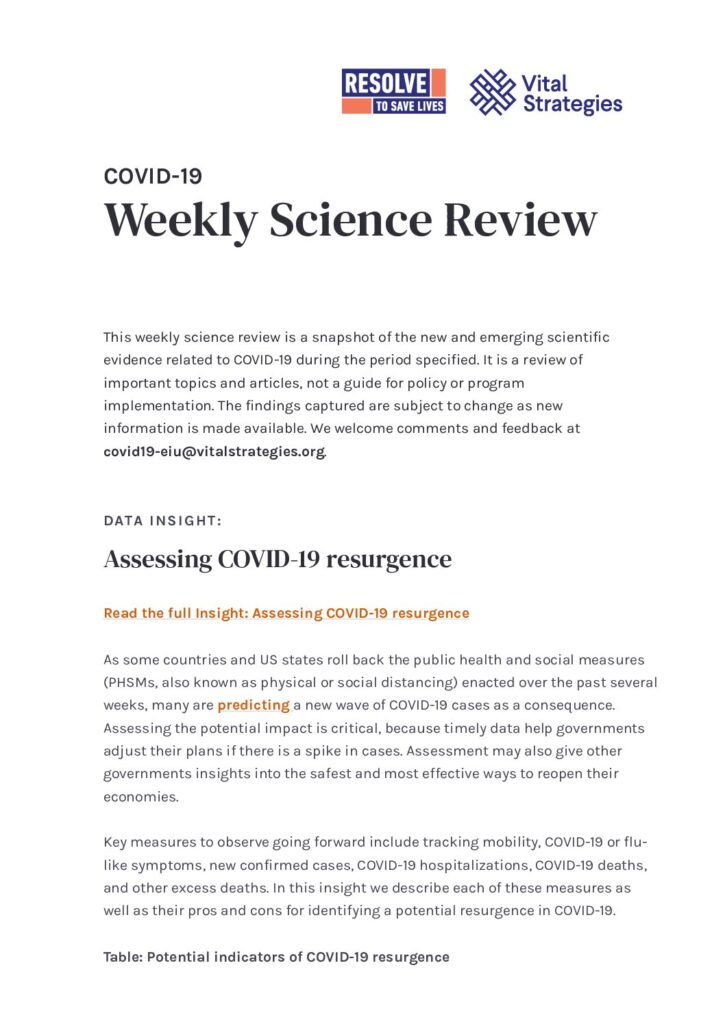
Assessing COVID-19 resurgence This science review is a snapshot of the new and emerging scientific evidence related to COVID-19 during the period specified. It is a review of important topics and articles, not a guide for policy or program implementation. The findings captured are subject to change as new information is made available. See also: Science […]
COVID-19 / In-Depth Science Review: April 25 – May 1, 2020
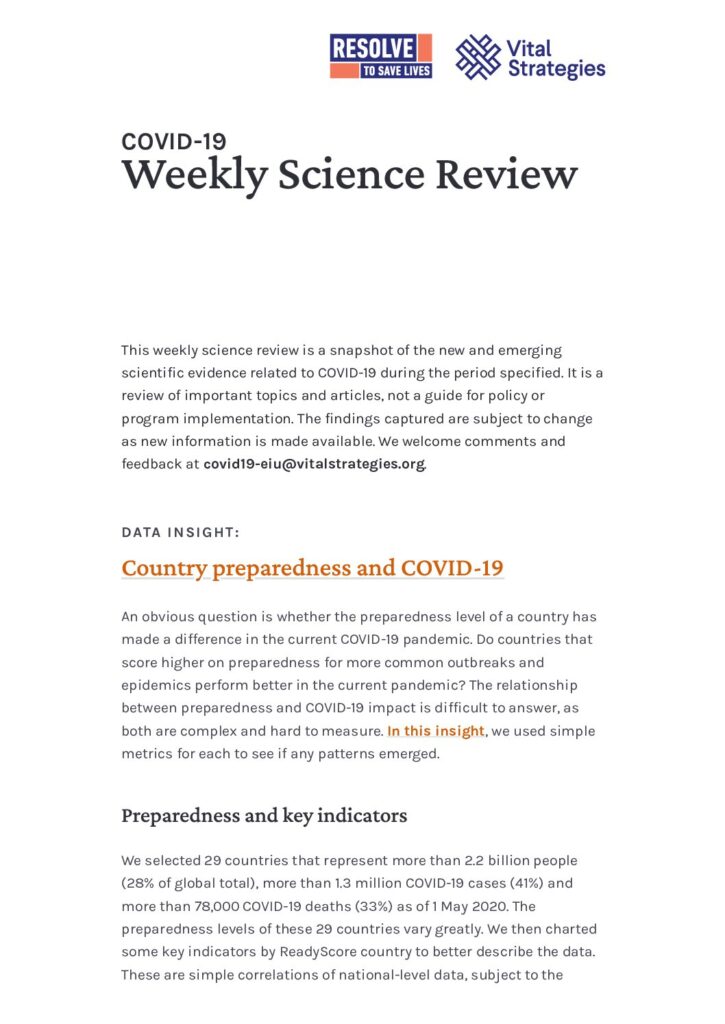
Country preparedness and COVID-19 This science review is a snapshot of the new and emerging scientific evidence related to COVID-19 during the period specified. It is a review of important topics and articles, not a guide for policy or program implementation. The findings captured are subject to change as new information is made available. See also: […]
COVID-19 / In-Depth Science Review: April 18 – 24, 2020
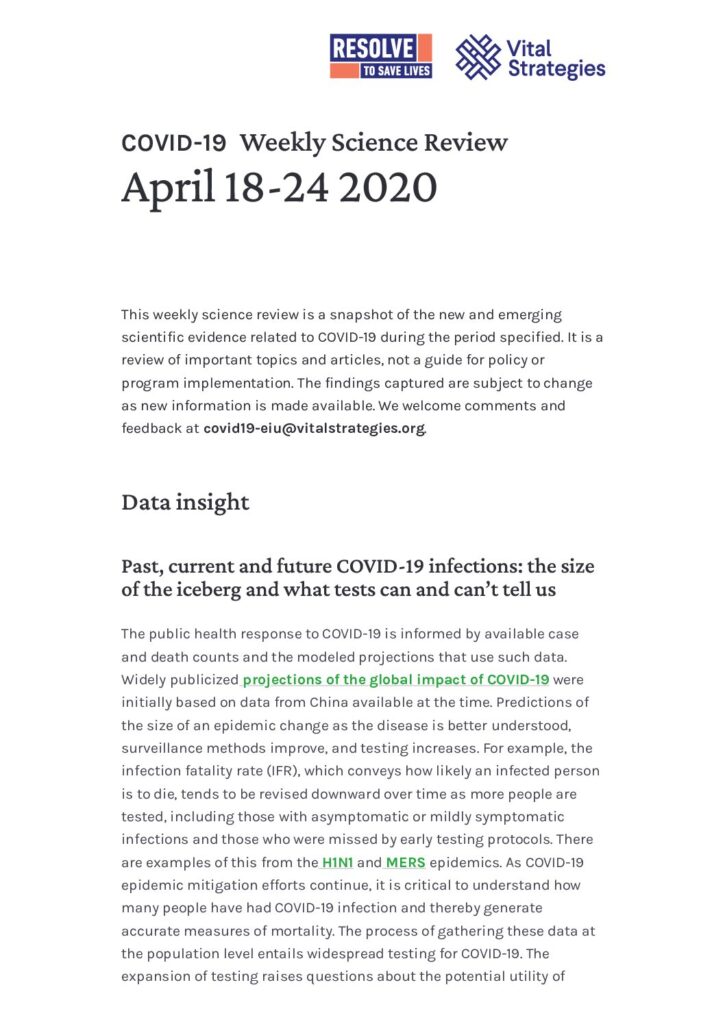
Past, current and future COVID-19 infections: the size of the iceberg and what tests can and can’t tell us This science review is a snapshot of the new and emerging scientific evidence related to COVID-19 during the period specified. It is a review of important topics and articles, not a guide for policy or program […]
COVID-19 / In-Depth Science Review: April 11 – 17, 2020
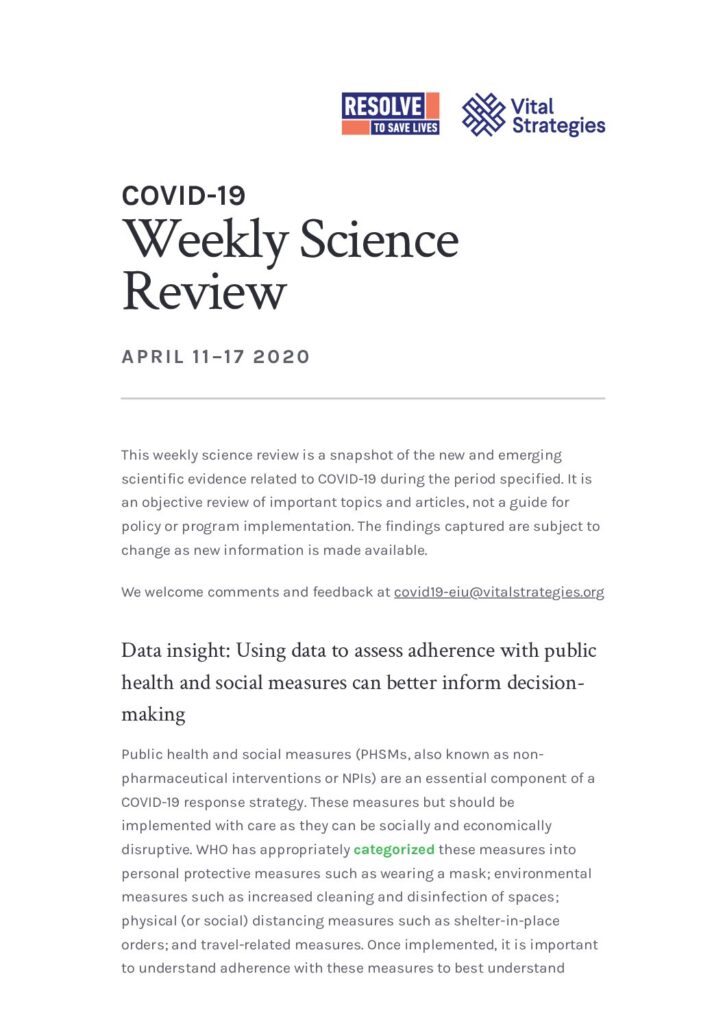
Using data to assess adherence with public health and social measures can better inform decision-making This science review is a snapshot of the new and emerging scientific evidence related to COVID-19 during the period specified. It is a review of important topics and articles, not a guide for policy or program implementation. The findings captured are […]
COVID-19 / In-Depth Science Review: April 4 – 10, 2020
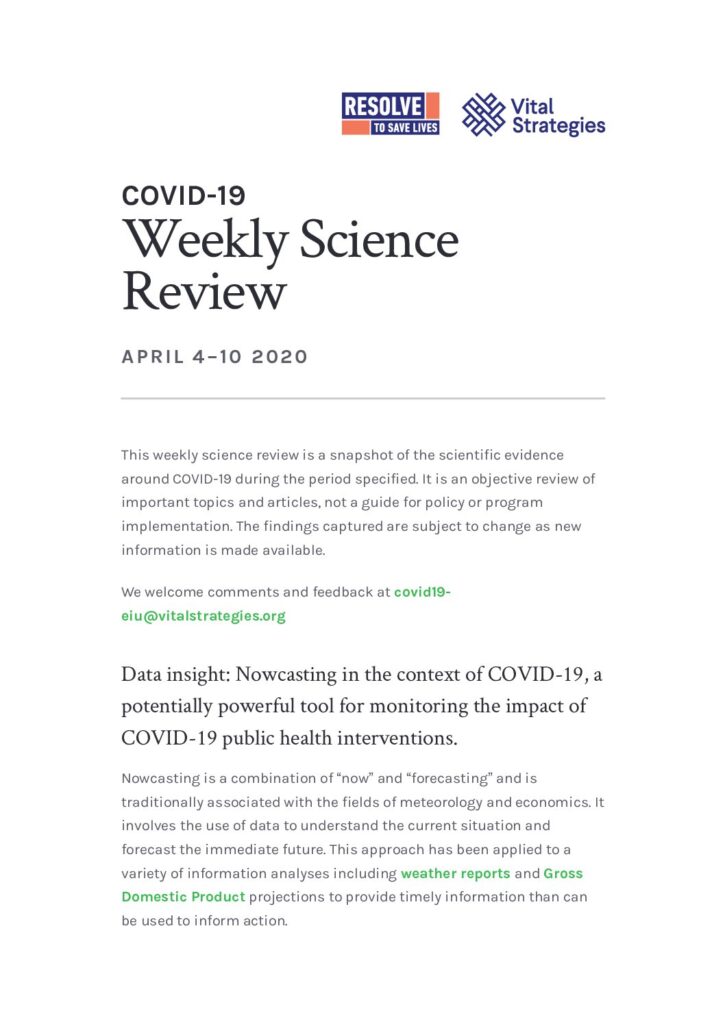
Nowcasting in the context of COVID-19 This science review is a snapshot of the new and emerging scientific evidence related to COVID-19 during the period specified. It is a review of important topics and articles, not a guide for policy or program implementation. The findings captured are subject to change as new information is made available. […]
COVID-19 / In-Depth Science Review: March 28 – April 3, 2020
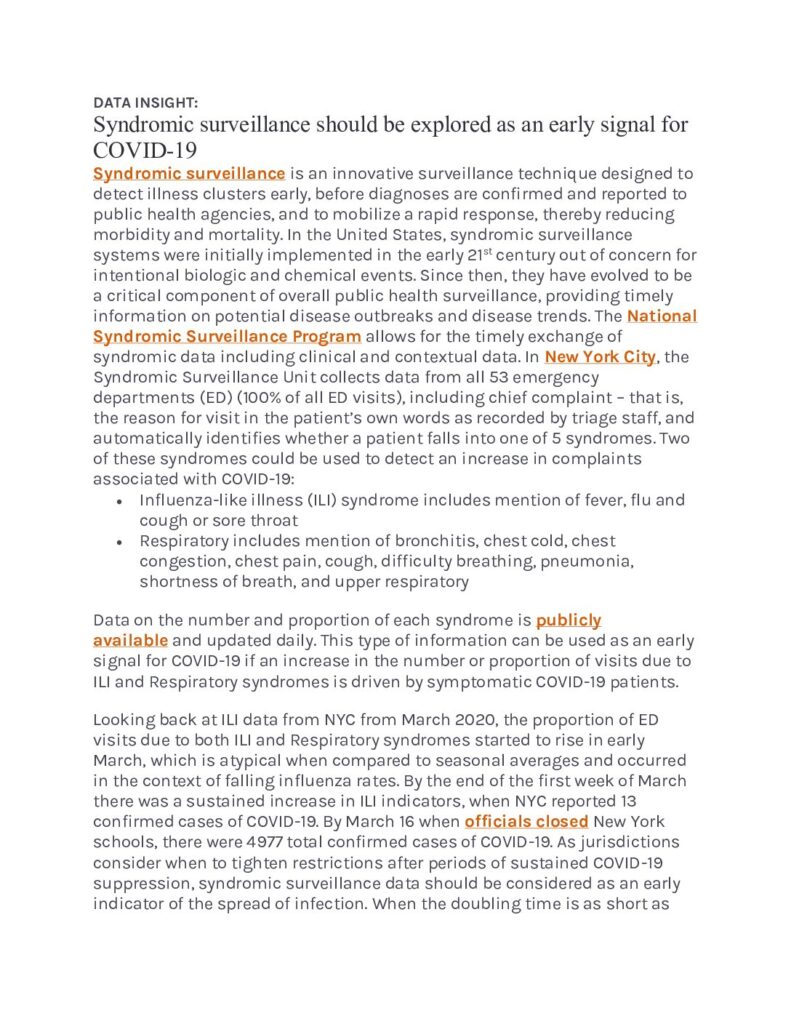
Syndromic surveillance should be explored as an early signal for COVID-19 This science review is a snapshot of the new and emerging scientific evidence related to COVID-19 during the period specified. It is a review of important topics and articles, not a guide for policy or program implementation. The findings captured are subject to change as […]
Assessing and reducing risk to health care workers in outbreaks
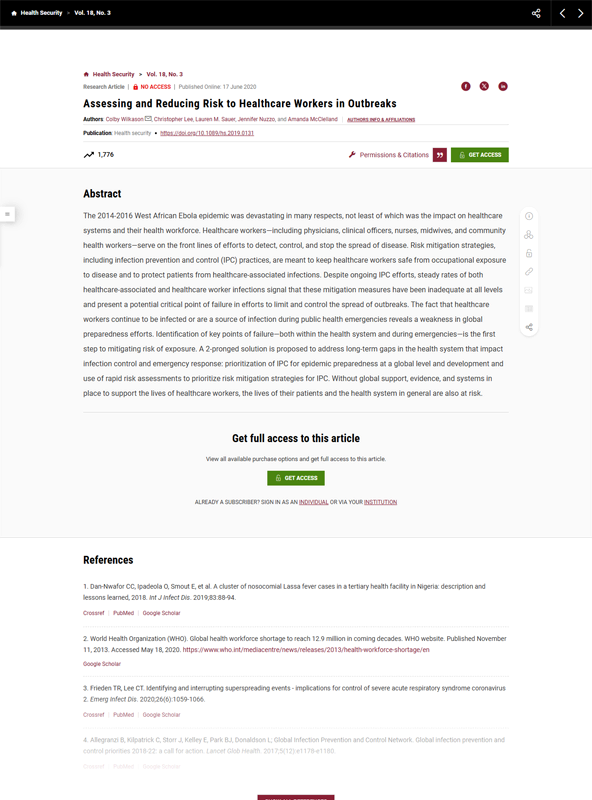
Identiftying critical points of failure within the health system and during emergencies is the first step to mitigating future risk exposure. The West African Ebola epidemic (2014-2016) revealed alarming gaps in infection prevention and control for health care workers, highlighting a major vulnerability in global health security. Experts from Resolve to Save Lives propose a […]
COVID-19 / In-Depth Science Review: January 9th-15th, 2020
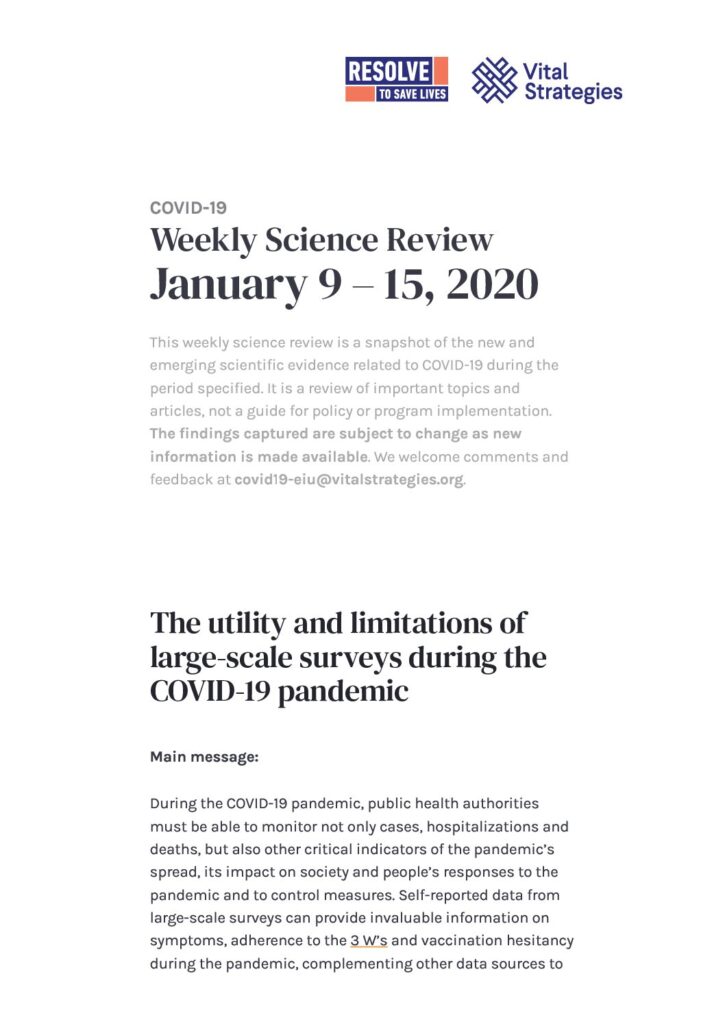
The utility and limitations of large-scale surveys during the COVID-19 pandemic This science review is a snapshot of the new and emerging scientific evidence related to COVID-19 during the period specified. It is a review of important topics and articles, not a guide for policy or program implementation. The findings captured are subject to change as […]
Applying ‘timeliness’ to the screening and prevention of TB in household contacts of pulmonary TB patients
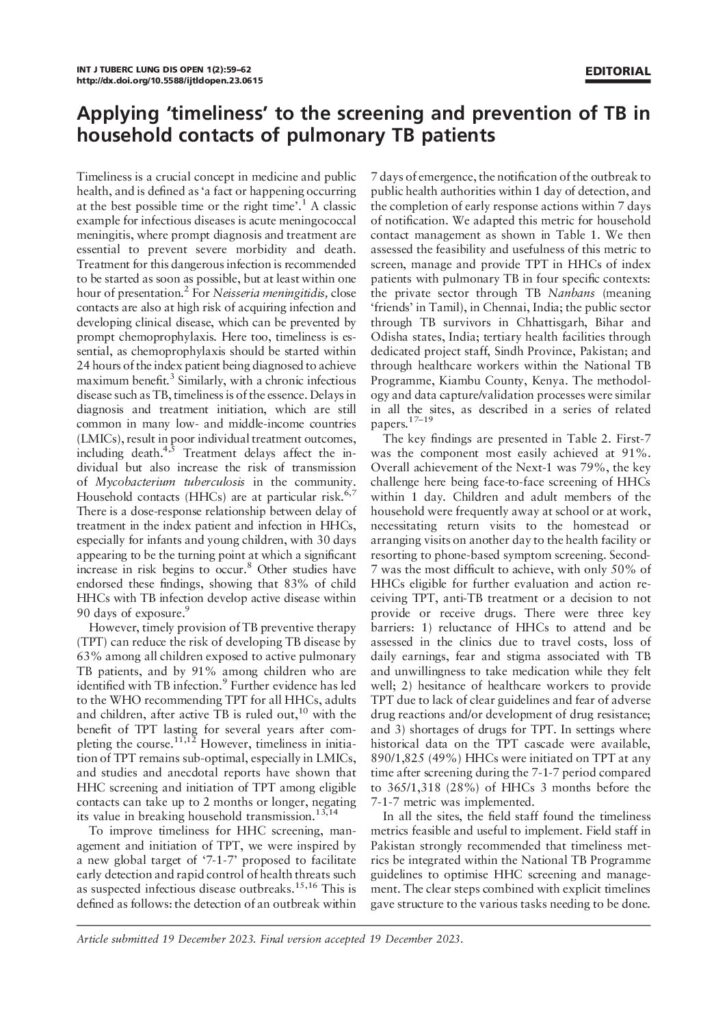
Timeliness is essential in preventing and controlling infectious diseases like meningococcal meningitis and tuberculosis (TB). Experts from resolve to save lives explored adapting the global 7-1-7 target for outbreak control to the management of household contacts of TB patients. Applying the metric in India, Pakistan, and Kenya improved TB preventive therapy (TPT) initiation rates, though […]
Addressing the challenges of implementing evidence-based prioritisation in global health
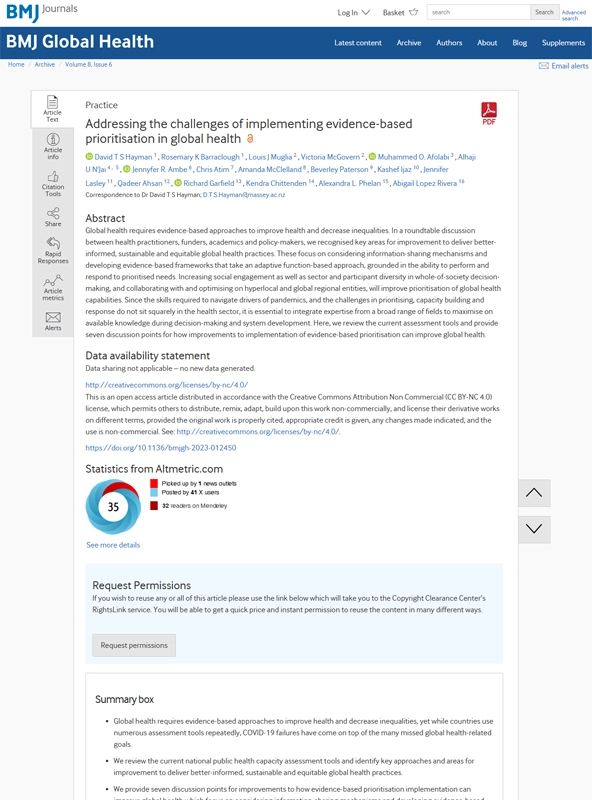
In a roundtable discussion with health practitioners, funders, academics, and policy-makers, experts from Resolve to Save Lives identified key areas for improving global health practices. We emphasized the importance of evidence-based frameworks that are adaptive and responsive to prioritised health needs. Key recommendations include enhancing information-sharing, increasing social engagement, and promoting diversity in decision-making processes. […]
Simplified hypertension control indicators
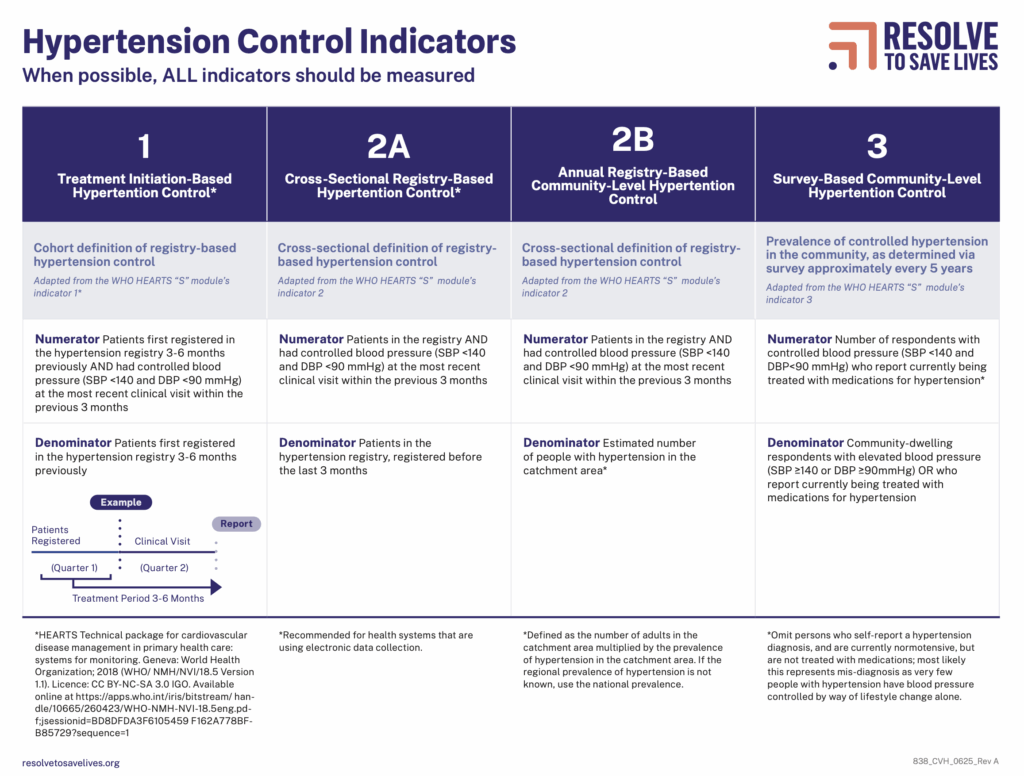
Simplified indicators adapted from the WHO HEARTS “S” module by Resolve to Save Lives
Action-based costing for national action plans for health security: accelerating progress toward the International Health Regulations (2005)
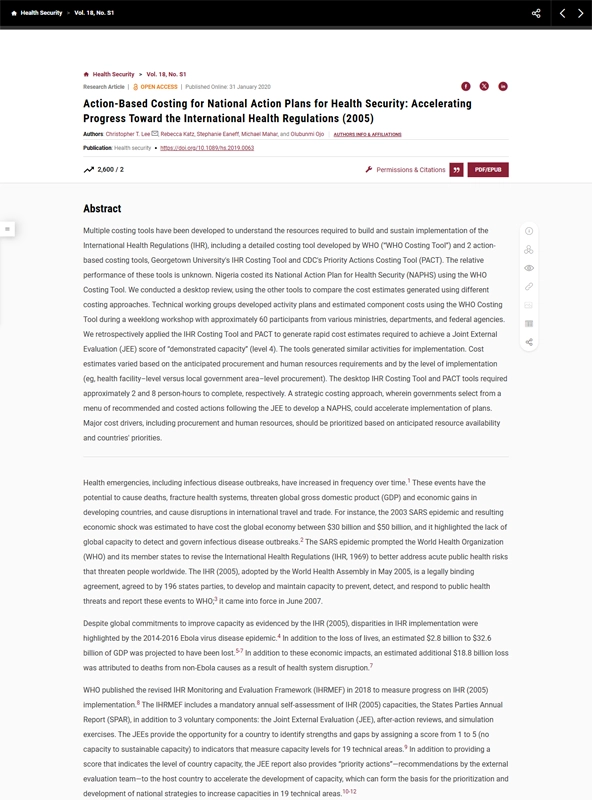
Implementing the International Health Regulations (IHR 2005) can be a cumbersome process, and costs vary widely from country to country. To support facilitating this complex work, experts from Resolve to Save Lives tested several new tools designed to estimate the resources needed for implementing the IHR. Using Nigeria’s National Action Plan for Health Security (NAPHS) […]
7-1-7: an organising principle, target, and accountability metric to make the world safer from pandemics
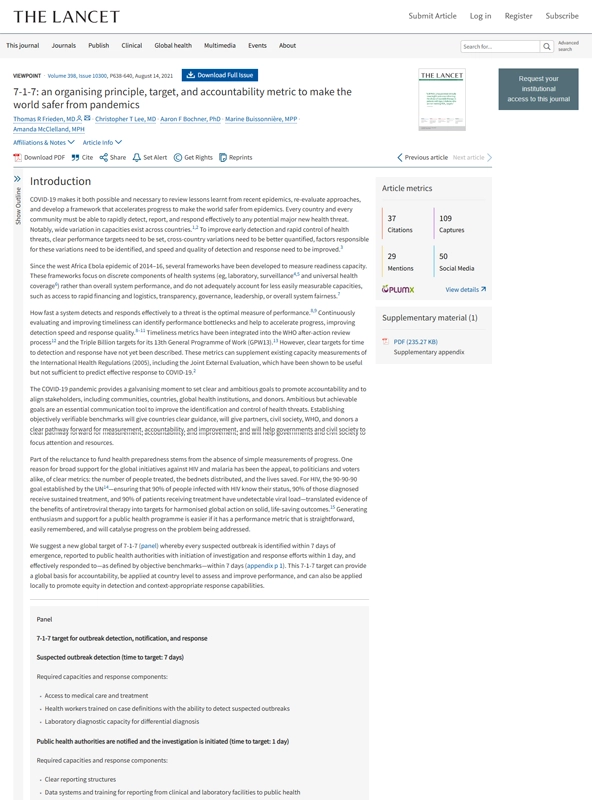
Clear, universal performance standards for outbreak detection, reporting and control can improve accountability, save lives, and accelerate global readiness for future pandemics. For The Lancet’s Viewpoint, experts from Resolve to Save Lives propose 7-1-7 as a global target for timely response to infectious disease outbreaks: detecting a suspected outbreak within 7 days, reporting and initiating […]
Guideline: sodium intake for adults and children

This guideline offers evidence-based recommendations for reducing sodium intake to prevent NCDs, supporting policymakers and program planners in assessing intake levels, developing interventions, and aligning efforts with global health targets.
PAHO: Protocol for Population Level Sodium Determination in 24‐hour Urine Samples

The WHO/PAHO Protocol for Population Level Sodium Determination in 24-hour Urine Samples guides countries in conducting surveys to estimate dietary salt intake, offering support for planning, staff training, data collection, and result dissemination to advance salt reduction initiatives